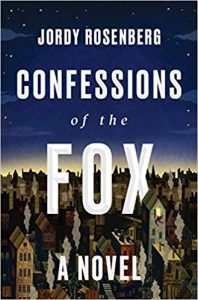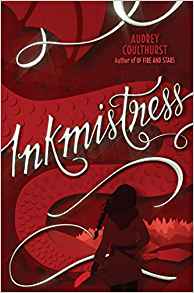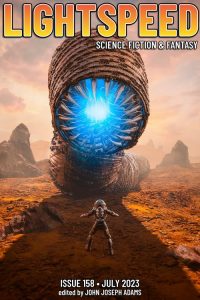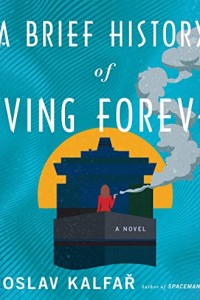Gary K. Wolfe Reviews Confessions of the Fox by Jordy Rosenberg
 Confessions of the Fox, Jordy Rosenberg (One World 978-0-399-59227-0, $27.00, 334pp, hc) June 2018.
Confessions of the Fox, Jordy Rosenberg (One World 978-0-399-59227-0, $27.00, 334pp, hc) June 2018.
When Jordy Rosenberg’s Confessions of the Fox appeared last summer to some mainstream fanfare, drawing praise from figures as diverse as China Miéville and Kelly Link, it didn’t come to my immediate attention since – at least technically – it’s not quite SF or fantasy. Instead, it concerns a failing professor named Voth who comes across an old manuscript that may be a contemporaneous account of the career of Jack Sheppard, the celebrated 17th-century London thief and jailbreaker whose exploits provided the inspiration for Macheath in John Gay’s The Beggar’s Opera and Mack the Knife in Brecht’s The Threepenny Opera – but who was also known to Henry Fielding and Daniel Defoe. The bulk of the novel is this manuscript, but the often hilarious and increasingly digressive footnotes, like those of Kinbote in Nabokov’s Pale Fire, introduce a second narrative line detailing Voth’s disastrous personal and professional life. Rosenberg’s novel is the sort that increasingly gets described as “genre-bending,” a tiresome term that ignores how most genres have been pretty twisty for decades, and it abuts the fantastic in several significant ways. For one thing, Sheppard is presented as a trans man, assigned female at birth, and his lover-accomplice Edgeworth Bess is in fact a South Asian immigrant named Bess Khan, giving an alternate speculative history feeling to the whole tale. For another, the headlong plot, which features not only plague ships, horror-story images of exploitation like the “Lion Man,” and a bizarre scheme to market a virility drug extracted from “the Gonads of London’s Most Notorious Rogues,” but also debates over Spinozan philosophy, suggests the sort of ebulliently horrifying proto-steampunk London of Neal Stephenson’s Baroque Cycle, but with some near-supernatural elements popped in toward the end. Third, Voth’s own contemporary life – he’s also trans – revolves around a dystopian-sounding university where the “Dean of Surveillance” hounds him to complete his annotations (while suspending his pay because of Voth’s excessive use of his office hours to play phone Scrabble), and where a shadowy company called P-Quad Publishers and Pharmaceuticals, in an ominous partnership with the university, assigns an overseer to Voth’s work for reasons that are at first unfathomable.
Rosenberg is a professor at the University of Massachusetts Amherst, so it’s not surprising that many of those voluminous footnotes direct us to actual historical research about 18th-century London, suggesting that its population might have been a good deal more multicultural and genderfluid than is generally represented (and his enthusiastic deployment of street slang terms for a wide variety of sexual identities and activities seems to support this). He’s equally interested in recognizing anti-colonialist and anti-capitalist resistance movements that somehow survived on the margins of an almost comically corrupt urban society. Jack’s main nemesis, for example, is Jonathan Wild, London’s “Thief-Taker General” (later the subject of books by Defoe and Fielding), who not only bribed cops and prison guards, but would collect rewards for returning items his own gang of thieves had stolen. Wild becomes the symbol of the almost unimaginably rotten system which Jack, at Beth’s urging, sets out to undermine, and it’s his “granulated strength elixir,” literally distilled from the bodies of famous criminals, that becomes the novel’s climactic image of feral capitalism. Even back then, it seems, Soylent Green was people.
Gary K. Wolfe is Emeritus Professor of Humanities at Roosevelt University and a reviewer for Locus magazine since 1991. His reviews have been collected in Soundings (BSFA Award 2006; Hugo nominee), Bearings (Hugo nominee 2011), and Sightings (2011), and his Evaporating Genres: Essays on Fantastic Literature (Wesleyan) received the Locus Award in 2012. Earlier books include The Known and the Unknown: The Iconography of Science Fiction (Eaton Award, 1981), Harlan Ellison: The Edge of Forever (with Ellen Weil, 2002), and David Lindsay (1982). For the Library of America, he edited American Science Fiction: Nine Classic Novels of the 1950s in 2012, with a similar set for the 1960s forthcoming. He has received the Pilgrim Award from the Science Fiction Research Association, the Distinguished Scholarship Award from the International Association for the Fantastic in the Arts, and a Special World Fantasy Award for criticism. His 24-lecture series How Great Science Fiction Works appeared from The Great Courses in 2016. He has received six Hugo nominations, two for his reviews collections and four for The Coode Street Podcast, which he has co-hosted with Jonathan Strahan for more than 300 episodes. He lives in Chicago.
This review and more like it in the January 2019 issue of Locus.
 While you are here, please take a moment to support Locus with a one-time or recurring donation. We rely on reader donations to keep the magazine and site going, and would like to keep the site paywall free, but WE NEED YOUR FINANCIAL SUPPORT to continue quality coverage of the science fiction and fantasy field.
While you are here, please take a moment to support Locus with a one-time or recurring donation. We rely on reader donations to keep the magazine and site going, and would like to keep the site paywall free, but WE NEED YOUR FINANCIAL SUPPORT to continue quality coverage of the science fiction and fantasy field.








